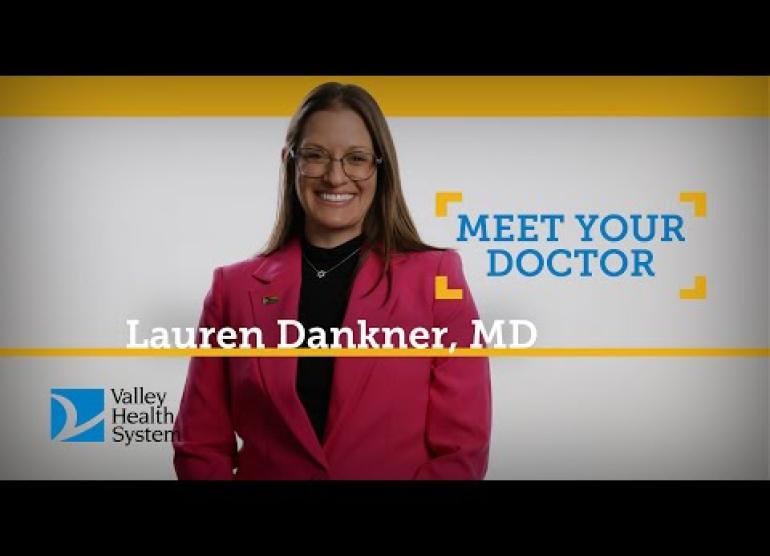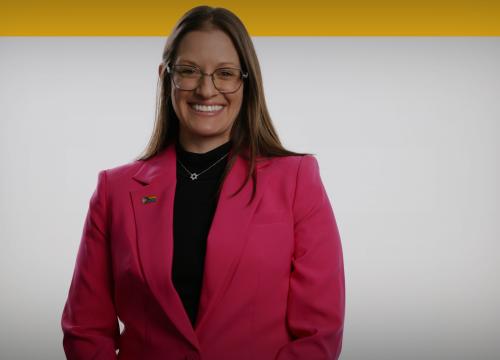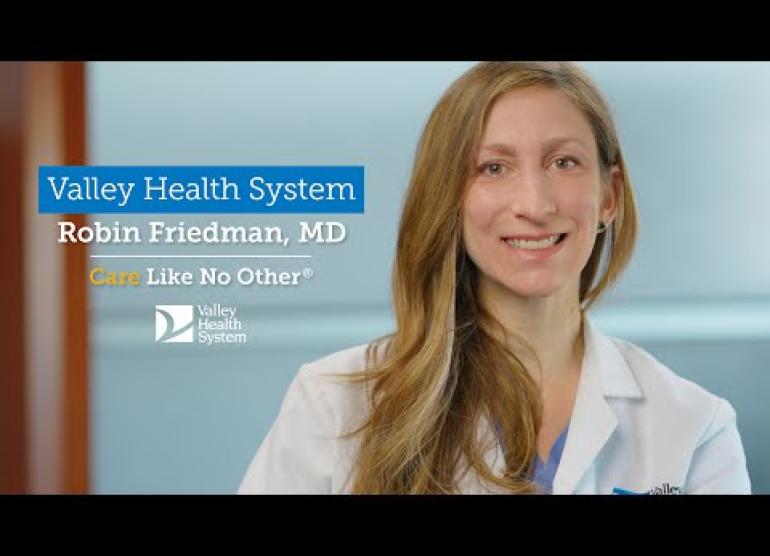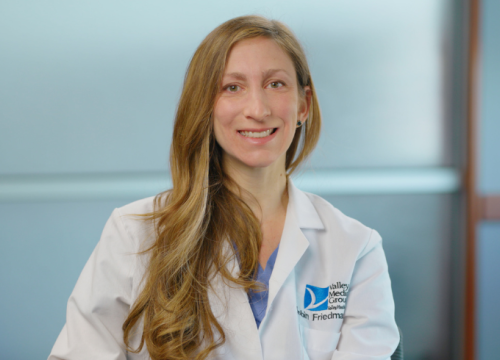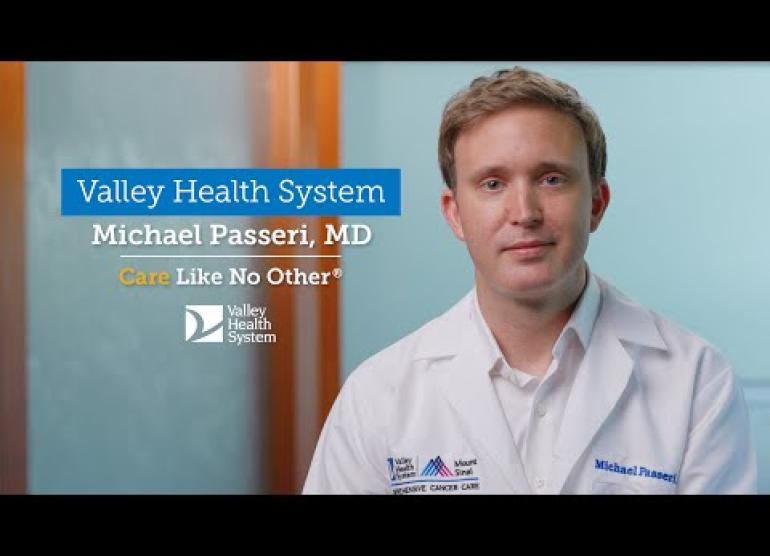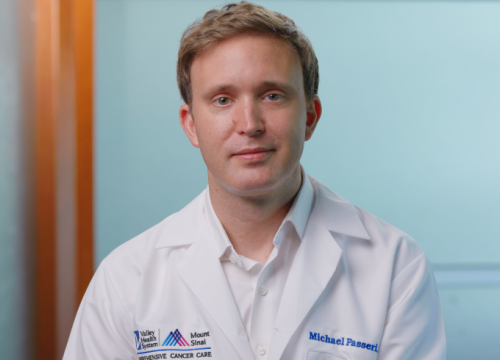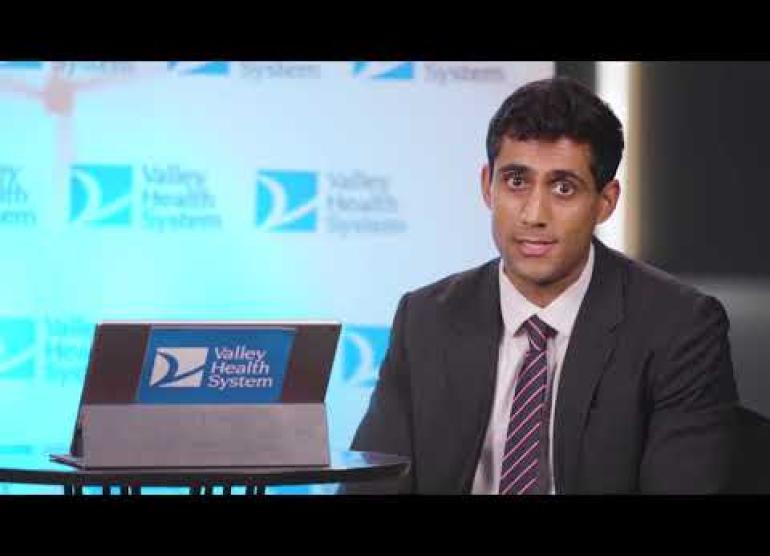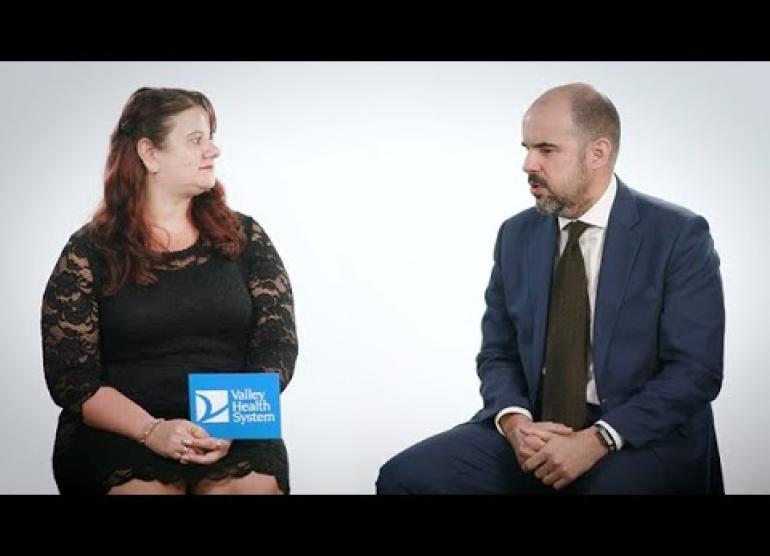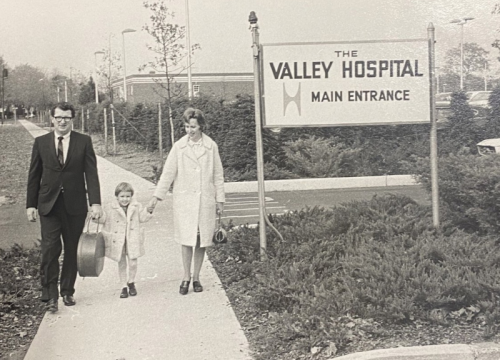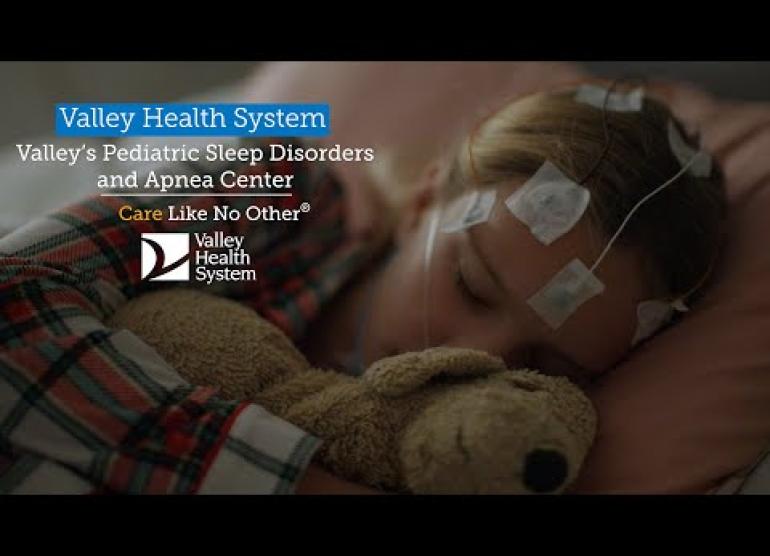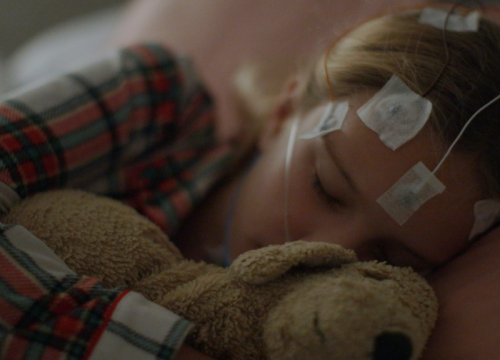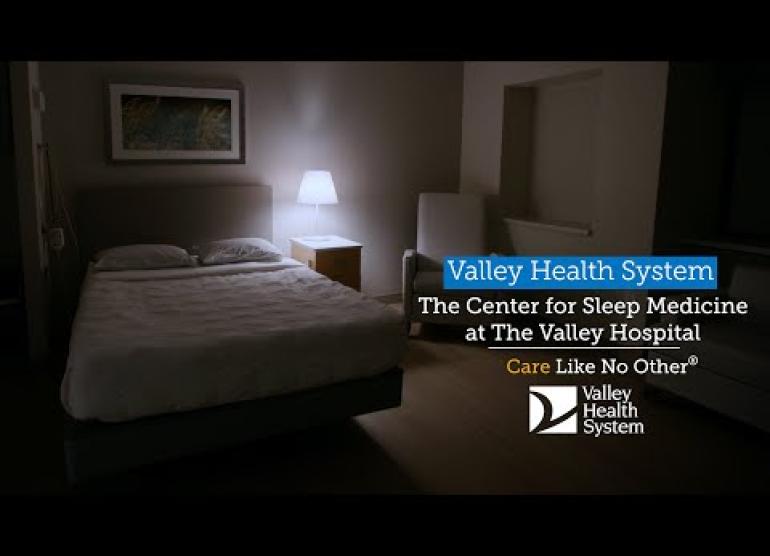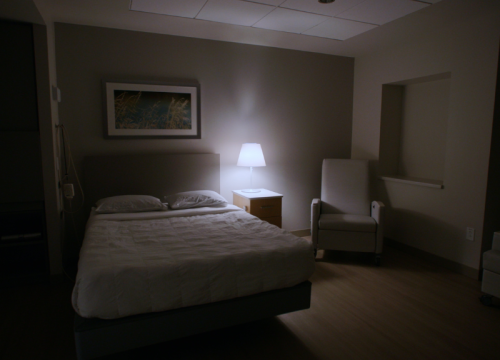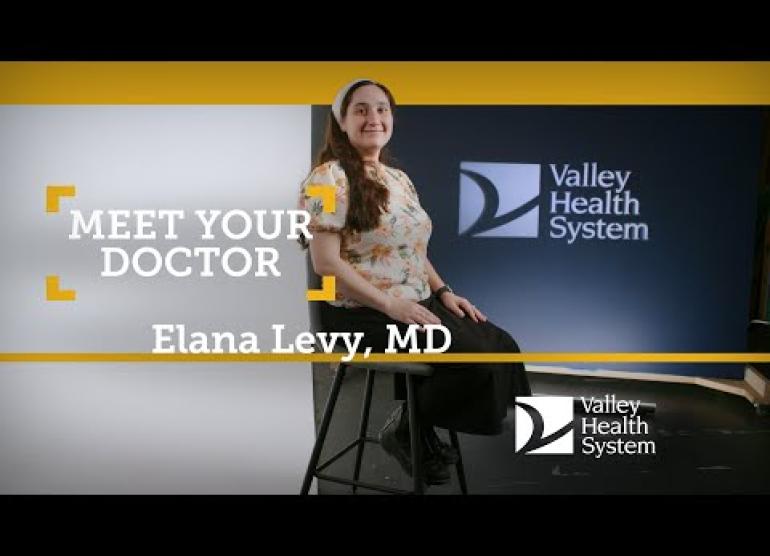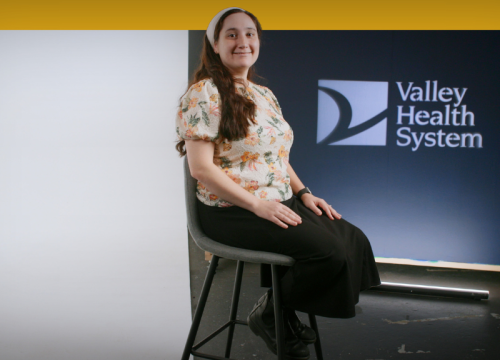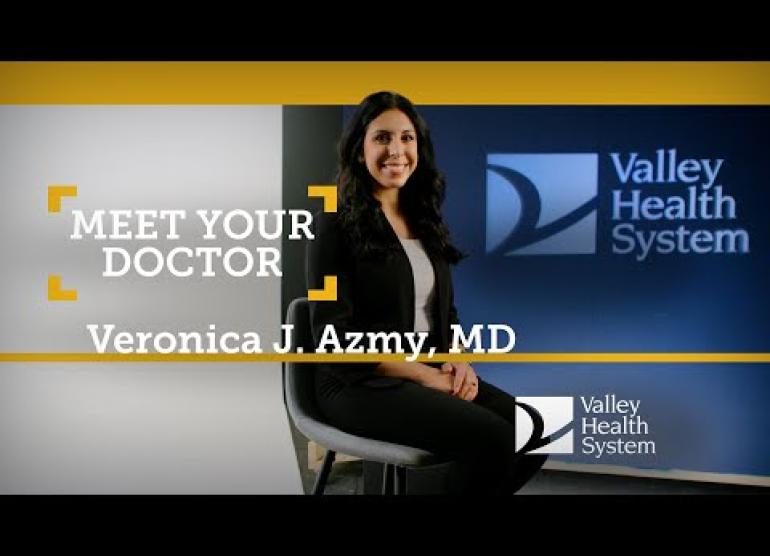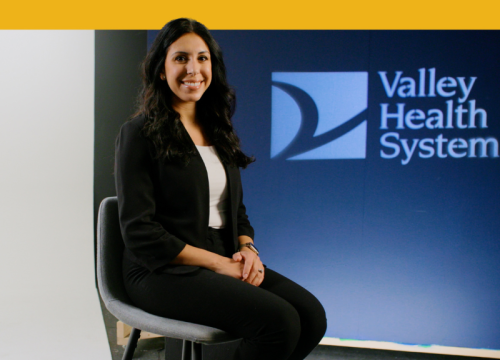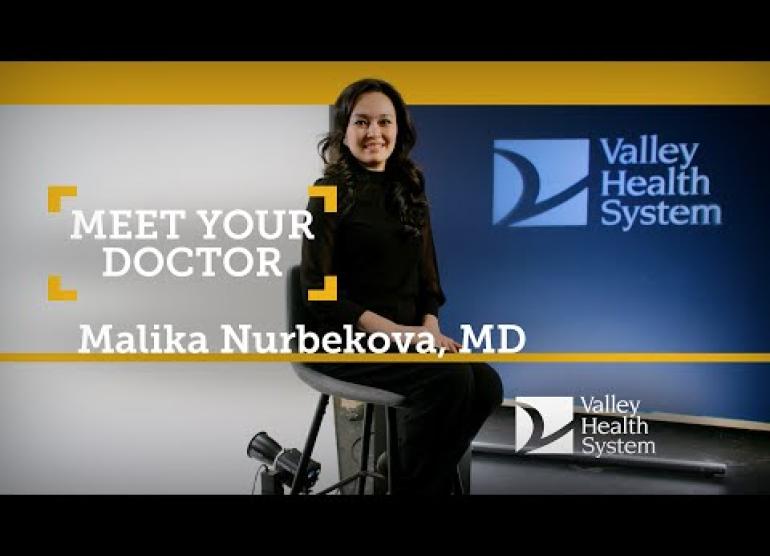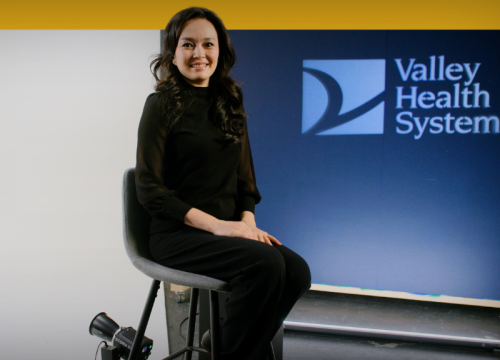Valley offers advanced cancer care for colon and rectal cancer close to home.
Our specialists will work with you to develop a care plan based on your specific cancer and preferences.
We offer all the latest treatments for colorectal cancer, including robotic surgery, targeted therapies, precision radiation therapy and more. All with the compassion and convenience you expect from Valley.
Risk Factors for Colon and Rectal Cancer
Colorectal cancer can occur at any age. In recent years, the incidence of colon cancer and rectal cancer in people under 50 has increased.
These are some of the risk factors for colon cancer and rectal cancer:
- Inflammatory bowel disease, including Crohn’s disease and ulcerative colitis
- Family history of colon cancer and rectal cancer
- Genetic syndromes like familial adenomatous polyposis or hereditary non-polyposis colorectal cancer (also known as Lynch syndrome)
While colorectal cancer sometimes runs in families, most people who get it don’t have a family history. Other risk factors include:
- Lack of physical activity
- A diet high in processed meats and low in fiber
- Alcohol consumption
- Smoking
- Obesity
Colorectal Cancer Screening Guidelines
At Valley, we’re focused on screening and early detection of colorectal cancer — and starting treatment quickly.
At Valley, we offer several options for screening, including colonoscopy, fecal immunochemical test (FIT) and CT colonography (or virtual colonoscopy).
If you have risk factors colorectal cancer, you should start getting screening colonoscopies every five years starting at age 40 or earlier.
Even if you don’t have risk factors of colorectal cancer, you should start regular colon cancer and rectal cancer screening every 10 years starting at age 45.
Learn more about colon and rectal cancer screening and the guidelines for screening.
Colon Cancer and Rectal Cancer Symptoms
Colorectal cancer often has no symptoms until its later stages. Especially in its later stages, colorectal cancer may cause the following symptoms:
- Abdominal pain
- Change in bowel habits (going more or less than usual)
- Blood in your stool
- Constipation
- Diarrhea
- Nausea or vomiting
- Fatigue
- Weight loss without a clear cause
These symptoms don’t mean you definitely have colon cancer or rectal cancer, but you shouldn’t ignore them. Make an appointment with a primary care doctor or a gastroenterologist at Valley. If they think you may have cancer, they may recommend a colonoscopy.
A Team Approach to Colon Cancer and Rectal Cancer Care
At Valley, you’ll have a team of providers who each specialize in diagnosis and treatments — all working together, for you.
Your team may include:
- Gastroenterologists
- Colorectal surgeons
- Medical oncologists
- Radiation oncologists
- Surgical oncologists
- Genetic counselors
- Primary care physicians
- Diagnostic radiologists
- Interventional radiologists
- Pathologists
- Nurses, including wound and ostomy nurses
- Social workers
- Dietitians
Colon Cancer and Rectal Cancer Treatment at Valley
There are several different treatment options for colorectal cancers. This can include colorectal surgery chemotherapy, targeted therapies, immunotherapy, radiation therapy or a combination of these.
Determining the right colorectal treatment for you will focus on several factors:
- The stage of the cancer and whether it has spread to other parts of your body.
- The location of the tumor and whether it is causing a blockage or bleeding.
- Your genetics and the molecular profile of your cancer.
- Your lifestyle, preferences and goals for treatment.
You and your care team will work together to develop a care plan specific to your needs.
Genetic and Genomic Testing
To ensure we’re offering you the most effective and personalized treatments, we offer genetic and genomic testing. This helps us determine the right treatment specifically for you.
- Genetic counseling and testing: Some genetic mutations are inherited. That means people in the same family are likely to share them. If we suspect the colorectal cancer may be related to an inherited mutation, we’ll offer you genetic counseling and testing when necessary.
- Molecular profiling: We do molecular profiling on all patients with colorectal cancer to help determine the best treatments for your specific cancer. We also perform advanced genomic testing, including next-generation sequencing, to help you and your care team make decisions about your treatment. About 15%-20% of people with colorectal cancer may benefit from drugs that target specific genetic mutations in the cancer. Patients with specific genetic mutations or molecular properties may also benefit from clinical trials.
- Circulating tumor DNA testing (ctDNA): We may also recommend tests that look for circulating tumor DNA (ctDNA) after your surgeon has removed the colorectal tumor. This helps us estimate the risk that the cancer will return — helping to guide your treatment plan.
Colon Cancer and Rectal Cancer Surgery
Colorectal surgery is the most common treatment for colon cancer and rectal cancer.
Whether and when you need surgery depends on many factors, including the cancer’s size and location.
- For colon cancer and very early rectal cancer, surgery often is the first step.
- For more advanced or lower rectal cancer, surgery often comes after other treatments, like chemotherapy and radiation, that help shrink the size of the tumor. Shrinking the tumor can make surgery more successful — or may help you avoid surgery altogether.
Colorectal surgeons at Valley specialize in the latest surgical techniques including laparoscopic and robotic surgery. These minimally invasive approaches may lead to a faster recovery and fewer side effects.
Chemotherapy, Immunotherapy and Radiation Therapy for Colorectal Cancer
Valley offers all the latest treatments for colorectal cancer. This includes chemotherapy, immunotherapy, targeted therapy and radiation therapy. We also offer clinical trials.
Depending on your needs, we may recommend a combination of these treatments before, after or instead of surgery.
- Before rectal cancer surgery: Valley offers total neoadjuvant therapy for advanced rectal cancers and some colon cancers. Neoadjuvant therapy is the use of radiation and/or chemotherapy before surgery. The goal is to shrink the tumor and kill cancer cells to help make the surgery more successful. Studies have found that this approach helps improve survival and quality of life. And in some cases, the cancer shrinks so much that surgery isn’t needed.
- After colon cancer or rectal cancer surgery: Sometimes surgery can’t completely remove colon cancer or rectal cancer. In these cases, we use chemotherapy, radiation therapy, immunotherapy or a combination to eliminate microscopic cancer cells.
In addition to the latest approved therapies, we offer clinical trials at Valley-Mount Sinai Comprehensive Cancer Care. These trials are exploring the role of ctDNA and novel adjuvant therapies for colorectal cancer. Through clinical trials, you may be able to access new therapies before they become widely available.
Treatment for Advanced Colorectal Cancer
When colon cancer or rectal cancer has spread to other parts of the body, it is referred to as metastatic colorectal cancer. If colon cancer and rectal cancer spread, surgery isn’t always the right treatment.
If surgery isn’t right for you, we provide treatments that help you live longer and more comfortably. This may include radiation therapy, chemotherapy, immunotherapy, a combination of treatments, or clinical trials.
Metastatic liver cancer
Most commonly, colon cancer spreads to the liver. In fact, the most common type of liver cancer is advanced-stage colorectal cancer that has spread.
Valley’s colon cancer and rectal cancer team offers treatments that can prolong life and improve quality of life for patients who have colorectal cancer that has spread to the liver. These may include:
- Surgery: Surgery to remove the cancer from the liver is the most common treatment for colon cancer that has spread to the liver.
- Microwave ablation: When surgery is not an option, providers may use microwave ablation, which heats and destroys the tumor.
- Y90 radioembolization: This radiation therapy is specifically for liver cancer. The treatment delivers high doses of radiation directly to the tumor through a catheter (a thin tube). This targets the cancer cells while avoiding damage to health tissue and cells.
- Stereotactic body radiation therapy (SBRT): This treatment delivers high-dose radiation to a specific area to help save affected parts of the liver.
- Intra-hepatic chemotherapy: This treatment delivers chemotherapy directly into the liver.
- Hepatic Arterial Infusion Pump: With the support of Mount Sinai, we are now offering Hepatic Arterial Infusion Pump (HAI or HAIP) therapy, which delivers chemotherapy directly to the liver.
Appendix cancer
Advanced-stage colorectal cancers, including appendix cancer, can also spread to the lining of your abdominal cavity.
For those patients, we offer cytoreductive surgery and HIPEC (hyperthermic intraperitoneal chemoperfusion). This specialized treatment is particularly effective for treating cancer that has spread to the lining of the abdomen.
Here’s how the treatment works:
- Your surgical oncologist starts by surgically removing as much of the tumor as possible.
- You’ll then receive intraperitoneal chemotherapy, which delivers chemotherapy directly inside of your abdomen.
Support During and After Treatment
We know colorectal cancer affects all aspects of your well-being. To help you cope with symptoms and treatment and live a full life, we offer:
- Surveillance and monitoring including regular exams, blood testing, colonoscopy and CT scans.
- Survivorship care and education, which includes guidance on diet, exercise and lifestyle that may improve your outcome.
- Medical Fitness Rx, a program that provides patients with a personalized exercise prescription at the recommendation of their physician.
- Ostomy care and education, if you need it, from experienced nurses at Valley’s Wound, Ostomy & Continence Center.
Why Choose Valley for Colon Cancer and Rectal Cancer Care?
- Highly experienced surgeons: Valley’s colorectal surgeons focus only on colorectal surgery. Each year, they perform more than 200 colorectal surgeries and nearly 2,500 colonoscopies. They’re also among a small number of surgeons with board certification in both colorectal surgery and general surgery. With this level of expertise and additional training, Valley colorectal surgeons specialize in the most up-to-date techniques.
- Treatment plans that help avoid permanent colostomy: Most of our patients do not need a permanent colostomy after surgery. For rectal cancer, using a combination of chemotherapy and radiation before surgery to shrink tumors helps make it easier for colorectal surgeons to preserve function. Additionally, sphincter-sparing procedures help reduce the risk for permanent colostomy.
- Precision medicine: Valley’s medical oncologists provide the most advanced therapies for colorectal cancer, including chemotherapy, targeted therapies and immunotherapies. They incorporate precision medicine into your treatment plan by using molecular profiling and genetic testing to help guide your treatment plan.
- Precision radiation therapy: Valley offers the most precise radiation treatments for colon cancer and rectal cancer, using ExacTrac Dynamic by Brainlab. This advanced technology improves the accuracy of radiation treatments. It also avoids healthy tissue (resulting in fewer side effects) and decreases treatment times.
- Collaborative care in your community: Valley-Mount Sinai Comprehensive Cancer Care offers combined expertise and collaboration to provide the care you need, here in northern New Jersey.



